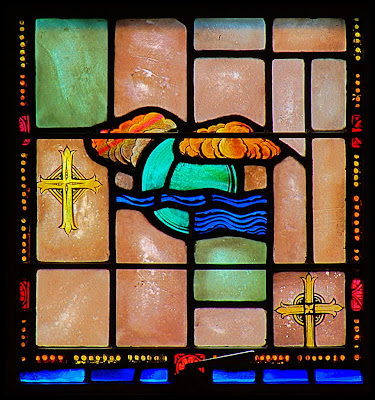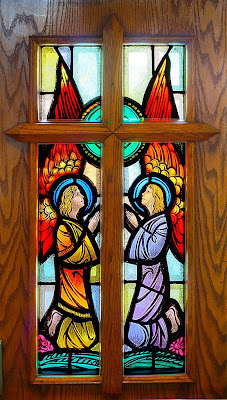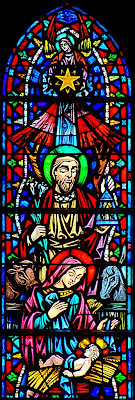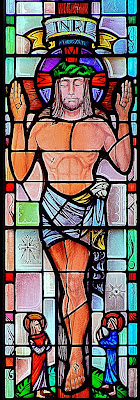 |
| Creation Day Three from Emmanuel |
And God said, "Let the water under the sky be gathered to one place, and let dry ground appear." And it was so. God called the dry ground "land," and the gathered waters he called "seas." And God saw that it was good. (Genesis 1:9-10)
At the beginning of Day Three of Creation we see again that God is making distinctions in His creation. Here he is separating the seas from the dry ground. We take such distinctions for granted because we see them all the time.
Astronomy is a wonderful tool to show us how important such distinctions are. The "gas giant" planets in our solar system are examples of places where there is no distinction between "earth" and "sky" and where there is no "dry ground" and "seas." God did not create such distinctions for His benefit. God existed for eternity before there was any created thing or any created place. All the work that God did (and still does) in creation He did (and does) for the benefit of his "crown of creation," which He made last of all things. Creation isn’t for God’s benefit. It is for us. God created all things to serve us and our needs.
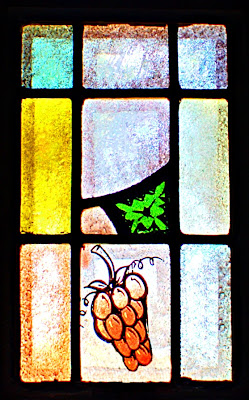 |
| From Emmanuel |
Then God said, "Let the land produce vegetation: seed-bearing plants and trees on the land that bear fruit with seed in it, according to their various kinds." And it was so. The land produced vegetation: plants bearing seed according to their kinds and trees bearing fruit with seed in it according to their kinds. And God saw that it was good. And there was evening, and there was morning--the third day. (Genesis 1:11-13)
Now that God had prepared the world for living things he begins to create them. God again puts everything in its proper order. You should remember, however, that on this Day Three of creation God had not yet created the Sun, so any light is provided by God Himself. We will one day see this again as Christ tells us in His revelation to St. John. "The city does not need the sun or the moon to shine on it, for the glory of God gives it light, and the Lamb is its lamp. The nations will walk by its light, and the kings of the earth will bring their splendor into it. On no day will its gates ever be shut, for there will be no night there." (Revelation 21:23-25)
Once again, on this third day of creation we see a God who is neither distant nor uncaring, and certainly not malevolent. We see that God has great attention to detail because He cares for those for whom He is making the universe. God cares for us, and we can see it in everything He does in creating this Paradise for us. Even when we later rebel against God and corrupt His gracious creation through our disobedience, God cares enough to send a savior to redeem us and rescue us from the eternal punishment that our sins deserve.
The Seven Days of Creation
In the Beginning
The Orderly Creation
Distinctions in Creation
The Center of the Universe
Designed by God
The Crown of God’s Creation
A Sabbath Day Rest

